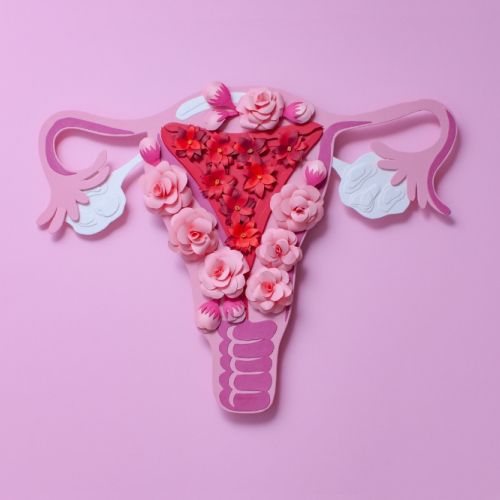What Are Tubal Ligation Reversal Side Effects?

A tubal ligation reversal is a procedure that may allow you to get pregnant even though you had your tubes tied. In a tubal ligation reversal procedure, your doctor reconnects or reopens your fallopian tubes which can make it possible for an egg and sperm to unite. A common question from women who are interested in this procedure is, “What are tubal ligation reversal side effects?”
Possible Side Effects of a Tubal Ligation Reversal
When you have a tubal reversal done by the expert physicians at The Center for Reproductive Health, the risk of complications or side effects is low. You’re sedated during the procedure and won’t feel any discomfort. You may feel groggy or sleepy for several hours after the procedure, and you’ll need someone to drive you home.
You may have some tenderness and pain the first few days after the procedure, and you may be given a prescription pain reliever to help you be as comfortable as possible as your body heals. Most people can resume normal activities within about a week. Your doctor will give you detailed post-op instructions regarding how long you may need to avoid sex or lifting anything heavy. It’s important to attend your follow-up appointment about a week after surgery to make sure you’re healing as expected.
Is There a Risk of Complications?
Complications of this procedure are rare, but since it’s a surgical procedure, there’s some risk of problems such as an allergic reaction to anesthesia, infection, or bleeding. There’s a very small chance of damage to other organs during surgery. When you have a tubal reversal, there is a slightly increased risk of having an ectopic pregnancy, which means a fertilized egg could implant outside your uterus.
The most common location of an ectopic pregnancy is the fallopian tubes. An egg that doesn’t implant in the uterus can’t grow to term. If the fallopian tube ruptures, you may experience severe pain and bleeding, which is a medical emergency.
Trying to Get Pregnant
After you’ve healed, your doctor will let you know how soon it’s safe to try to get pregnant. Around 50 to 80 percent of women under 35 can conceive within a year of a tubal ligation reversal. If you’re over 40 or if you have had other problems such as pelvic inflammatory disease, endometriosis, or scar tissue from previous pelvic surgery, the chances of successfully conceiving a child may be lower.
Alternatives to Tubal Ligation Reversal
Talk to the fertility experts at The Center for Reproductive Health if you have other questions about what to expect from a tubal ligation reversal. Our team can also explain other alternatives that may make it possible to have a baby even if you’re not sure you want to go through tubal ligation reversal. In vitro fertilization (IVF) is an option in which your eggs are combined with your partner’s sperm in a lab, which wouldn’t require reconnecting your fallopian tubes.
Schedule a consultation at The Center for Reproductive Health today for more information on the best options for you.
Eliran Mor, MD
Reproductive Endocrinologist located in Encino, Valencia & West Hollywood, CA
FAQ
What does a reproductive endocrinologist and infertility specialist do?
Reproductive endocrinology and Infertility is a sub-specialty of Obstetrics and Gynecology. In addition to managing medical and surgical treatment of disorders of the female reproductive tract, reproductive endocrinologist and infertility (REI) specialists undergo additional years of training to provide fertility treatments using assisted reproductive technology (ART) such as in vitro fertilization.
Reproductive endocrinologists receive board certification by the American Board of Obstetrics and Gynecology in both Obstetrics and Gynecology and Reproductive Endocrinology and Infertility.
When should I see an REI specialist?
In general, patients should consider consulting with an REI specialist after one year of trying unsuccessfully to achieve pregnancy. The chance of conceiving every month is around 20%, therefore after a full year of trying approximately 15% of couples will still not have achieved a pregnancy.
However, if a woman is over the age of 35 it would be reasonable to see a fertility specialist earlier, typically after 6 months of trying.
Other candidates to seek earlier treatment are women who have irregular menses, endometriosis, fibroids, polycystic ovary syndrome (PCOS), women who have had 2 or more miscarriages, or problems with the fallopian tubes (prior ectopic pregnancy).
What are the reasons we are having trouble conceiving?
Approximately 1/3 of the time cause for infertility is a female factor, 1/3 of the time a male factor, and the remaining 1/3 a couples’ factor.
At CCRH, we emphasize the importance of establishing a correct diagnosis. Both partners undergo a comprehensive evaluation including a medical history and physical exam.
Furthremore, the woman’s ovarian reserve is assessed with a pelvic ultrasound and a hormonal profile. A hysterosalpingogram (HSG) will confirm fallopian tube patency and the uterine cavity is free of intracavitary lesions. A semen analysis is also obtained to evaluate for concentration, motility, and morphology of the sperm.
Additional work up is then individualized to direct the best possible treatment option for each couple.
What is IVF? What is the process like?
In vitro fertilization (IVF) is the process that involves fertilization of an egg outside of a woman’s body.
The process starts with fertility drugs prescribed to help stimulate egg development. In your natural cycle, your body is only able to grow one dominant egg, but with stimulation medication we can recruit multiple eggs to continue to grow. After about 8-10 days of stimulation, the eggs are surgically retrieved and then fertilized with sperm in a specialized laboratory. Fertilized eggs are then cultured under a strictly controlled environment within specialized incubators in the IVF laboratory for 3-5 days while they develop as embryos. Finally, embryos (or an embryo) are transferred into the uterine cavity for implantation.
Should I have IVF?
Before deciding if IVF is the right choice, it’s important to sit down with an REI specialist to discuss available treatment options. For some people, other methods such as fertility drugs, intrauterine insemination (IUI) may be the best first choice treatment. At CCRH, we believe each individual couple is unique and not everyone needs IVF.
Is the IVF procedure painful?
While not painful, the fertility medications may some side effects including headaches, hot flashes, mood swings, and bloating. The injection sites may also bruise.
Will IVF guarantee a baby?
Unfortunately, no. Many people think once they start IVF it’s a matter of time that they will be pregnant and have a baby. But according to national statistics per the Society of Assisted Reproduction (SART), on average 40% of assisted reproduction cycles achieve live births in women under age 35. The chances of success then continue to decrease with advancing age.
At CCRH, we employ only evidence-based interventions to ensure patient safety and optimal outcome. While we cannot guarantee a baby, we guarantee that you will receive the best, most advanced, personalized care to help you maximize your chance of a baby.
What is the success rate for IVF?
The average IVF success rate (success measured in live birth rate) using one’s own eggs begins to drop around age 35 and then rapidly after age 40. This is due to the decline in egg quantity and egg quality as a woman ages.
Our clinic’s success rate consistently beats the national average year after year.
Do insurance plans cover infertility treatment? How much does IVF cost?
Individual insurance plans often do not have any coverage for infertility treatments. If you have a group plan, you can call members services to see if they have coverage for infertility (including consultation/workup and IVF).
After your consultation with our REI specialist, one of our dedicated account managers with sit with you to go over the cost of treatment.




